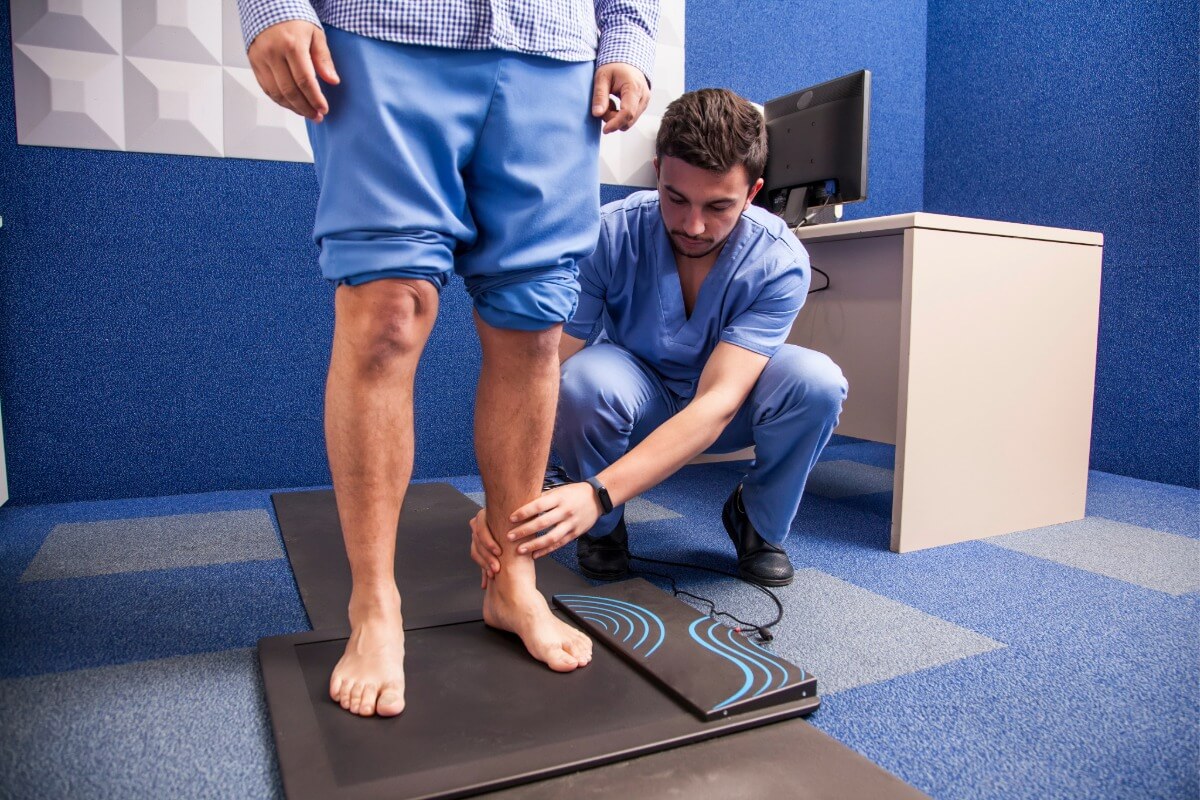Foot Pain: Signs You May Have Plantar Fasciitis

The plantar fascia is a band of connective tissue that runs along the bottom of the foot, creating the arch of the foot and connecting the heel to the toes. This important ligament can get injured, causing swelling and a great deal of foot pain in a condition called plantar fasciitis. If you suspect that you have plantar fasciitis, these are some symptoms and risk factors to look out for.
Symptoms
The main symptom for plantar fasciitis is heel pain. Patients often experience different types of pain with this condition, ranging from dull aching to stabbing sensations. When a patient is at rest, plantar fasciitis causes stiffness in the heel area of the foot. As a result, plantar fasciitis pain can be more severe in the mornings and after sitting for prolonged periods of time.
Patients can also experience increased pain when going up and down stairs. Plantar fasciitis symptoms can also be aggravated while participating in sports and other activities.
Risk Factors
There are several risk factors that can make patients more likely to develop plantar fasciitis. Age and weight both increase the risk of plantar fasciitis. People between the ages of 40 and 60 have the highest rates of plantar fasciitis. Obesity can also elevate the risk because the added weight puts increased pressure on the heel.
The way someone walks or the way their foot is shaped can also impact whether or not they get plantar fasciitis. Flat-footed people and those with high arches have a higher incidence of this condition. Additionally, atypical walking patterns that distribute your weight unevenly across your feet can cause plantar fasciitis.
Certain athletes are more likely to have onset of plantar fasciitis due to the stress their sport puts on their feet. Long distance running and ballet dancers put incredible pressure on their feet through their sport. The repeated impact of the heel while running and the pressure of dancing on pointe can also cause foot pain attributed to plantar fasciitis.
Prevention
People can prevent plantar fasciitis by being gentle on their feet. Exercising with moderate intensity and taking reasonable breaks can reduce the risk of plantar fasciitis. Engaging in a stretching routine before exercise can also help.
Treatment
After a plantar fasciitis diagnosis, patients may be eager to begin treatment so they can reduce their pain. In most cases, resting for a week, wearing shoes with good support, and taking over-the-counter medications to reduce inflammation, like ibuprofen and acetaminophen, can ease discomfort. More severe cases may require a more aggressive approach. Your doctor may prescribe a walking boot, orthotics, or even steroid injections to help you heal.
No one should have to endure foot pain. If you suspect that you have plantar fasciitis, get in touch with Dr. Elmi at Diablo Foot & Ankle. He can help you address your pain and get you moving again! Give us a call today at (925) 464-1982.
Related articles
Request your podiatry consultation now
Fill out our contact form for a prompt call back. Diablo Foot & Ankle: Premier podiatry group in Walnut Creek & Antioch

.svg)

.svg)
.svg)





